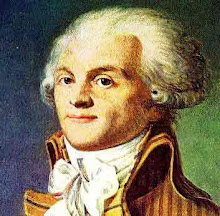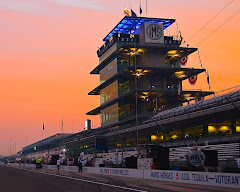
**NOTICE: Please see the comments below this article for alternatives to Dallara chassis monopoly. - Roggespierre**
Forbes estimates that John Menard possesses a personal fortune that is equal to that of Rupert Murdoch. Operating in an age that rewards financial engineering and economic rent-seeking more than fundamental value creation, Menard has built his business the old fashioned way. I respect him for it.
It is therefore ironic that the future of the Indy Racing League might depend on the home improvement magnate agreeing to become its financier. Tony George has indicated that Menard is interested in building and selling IndyCar engines. I do not claim to have inside knowledge, but I do suspect that the IRL would like to have Menard assume a different and, one could argue, more important role.
Series Sponsorship: Not a good Fit
Rumors have circulated that Menards stores might become the new title sponsor of the IndyCar Series. Curt Cavin of the Indianapolis Star reported this week that there has been nothing in the way of confirmation.
Examination of Menards' retail locations leads me to question why John Menard would have any interest in title sponsorship. Menard has nothing to gain from advertising at Long Beach, Sonoma, St. Petersburg, Texas, and Birmingham, let alone Toronto, Edmonton, Japan and Brazil. That is why I believe that the league has something altogether different in mind.
Menard as Financier
The IRL plans to introduce a new equipment package in 2012. Although some prefer to focus on technical characteristics, I believe that economics must be the primary consideration. Technical capabilities simply do not matter if the teams can not afford to operate.
Let's use chassis suppliers as our example. Firms such as Dallara, Lola and Dome are not going to begin development of a new IndyCar spec unless they receive a good chunk of cash upfront. Unfortunately, most IndyCar teams are not capable of providing the necessary capital outlay all at once. Therefore, a financial intermediary is required.
In the past, the Indianapolis Motor Speedway occupied that role. It co-signed on behalf of teams that sought loans from National City Bank so that cash payments for new equipment could be distributed over time. However, now that the IMS has exited the business of underwriting the IRL, a new intermediary must be found. I believe that the IRL would very much like to have John Menard accept that role.
Menard is one of few who has sufficient liquidity available to bear the cost of developing a new chassis. Underwriting the project would, of course, require that Menard accept the financial risk associated with non-payment. Each IndyCar team that fails to make good on its promise to pay for new equipment would cause Menard to incur a cash loss. This risk must be offset.
Therefore, Menard would also become the exclusive distributor of the new chassis. In effect, he would act as automaker and car dealer, financing the cost of development, purchasing the new cars from Dallara or whomever, and then selling them to IndyCar teams. Like any car dealer, Menard should be expected to add a retail mark-up. He is entitled to this because he accepted the risk of non-payment.
The Arbiter's Advantage
If John Menard were to accept the roles of underwriter and distributor, then he would also acquire tremendous bargaining power to influence IRL management. He who spends the money has the power; in this case, there is no new chassis unless Menard spends a lot.
John Menard happens to be a fan of IndyCar racing, a fact that warms the soul. I hope that Menard accepts the dual roles of underwriter and distributor. Equally important, I hope that he leverages his bargaining power to force IRL management to build an IndyCar Series that might succeed economically.
What are the conditions that Menard would do well to require?
- An oval-based U.S. racing series that occasionally ventures into road and street racing because:
- Ovals will attract U.S. drivers and, therefore, U.S. fans, which will allow for:
- Increased sponsor participation in IndyCar, which will ensure that:
- Teams have sufficient capital to make good on their promissory notes with Menard.
In addition, I suggest that the chassis retail for less than $200,000. Each additional dollar will only increase the risk of non-payment and delinquency. If $200k does not seem like enough, well, then that's too bad. NASCAR (sans-culottes!) Cup chassis cost less. Teams in that series have earned the right to spend more. IndyCar teams have not.
Hope for Dopes
John Menard has many tools at his disposal (sorry). He could save IndyCar racing from itself. The job will require not only lots of cash, but also ample resolve to engage in tough love. The IRL needs somebody like Menard much more than Menard needs the IRL.
Menard has earned a reputation for beating up his suppliers pretty badly at times. That is, after all, how low cost positioning is established and maintained in the retail industry. Let's hope he's ready to beat up some more.
He might be the last, best hope for IndyCar racing.
Roggespierre

